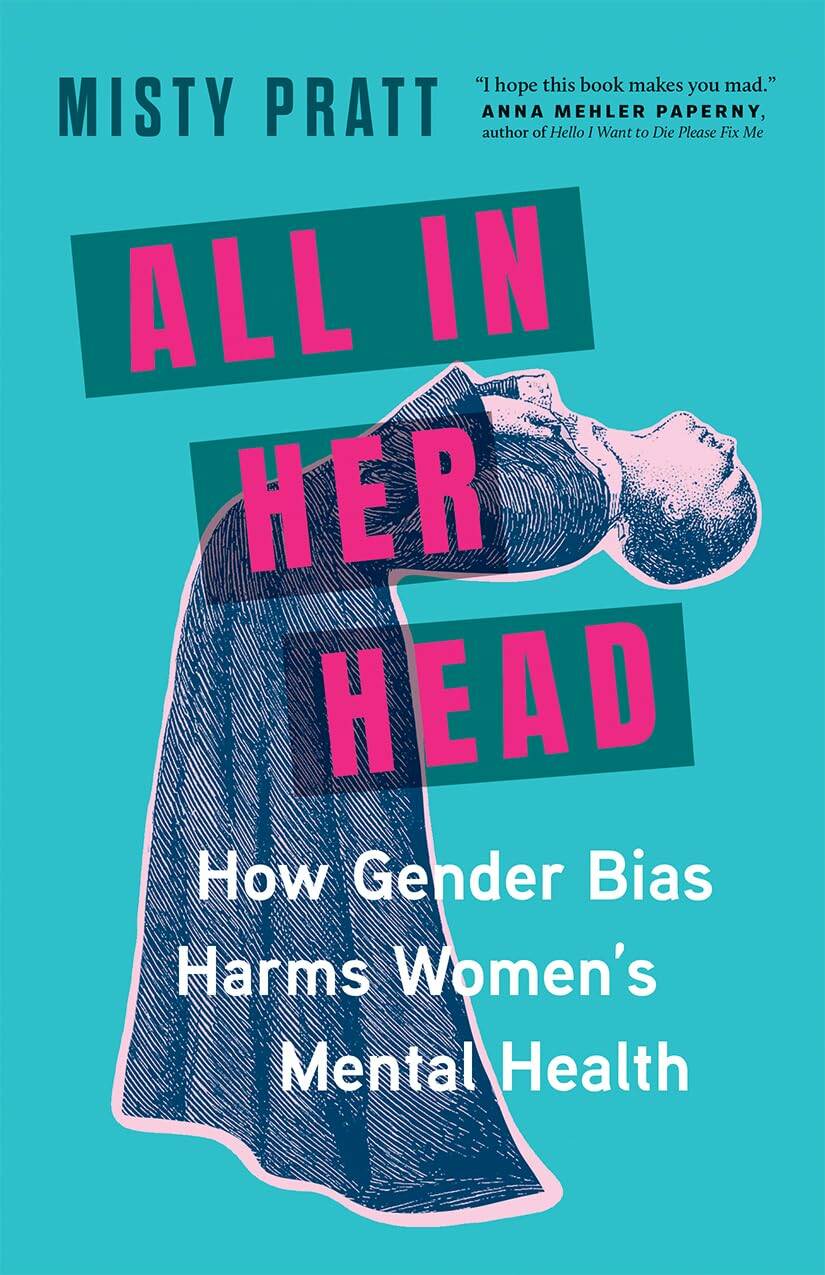Women’s mental-health concerns an afterthought
Advertisement
Read this article for free:
or
Already have an account? Log in here »
To continue reading, please subscribe:
Monthly Digital Subscription
$0 for the first 4 weeks*
- Enjoy unlimited reading on winnipegfreepress.com
- Read the E-Edition, our digital replica newspaper
- Access News Break, our award-winning app
- Play interactive puzzles
*No charge for 4 weeks then price increases to the regular rate of $19.00 plus GST every four weeks. Offer available to new and qualified returning subscribers only. Cancel any time.
Monthly Digital Subscription
$4.75/week*
- Enjoy unlimited reading on winnipegfreepress.com
- Read the E-Edition, our digital replica newspaper
- Access News Break, our award-winning app
- Play interactive puzzles
*Billed as $19 plus GST every four weeks. Cancel any time.
To continue reading, please subscribe:
Add Free Press access to your Brandon Sun subscription for only an additional
$1 for the first 4 weeks*
*Your next subscription payment will increase by $1.00 and you will be charged $16.99 plus GST for four weeks. After four weeks, your payment will increase to $23.99 plus GST every four weeks.
Read unlimited articles for free today:
or
Already have an account? Log in here »
Hey there, time traveller!
This article was published 08/06/2024 (511 days ago), so information in it may no longer be current.
For people experiencing a mental-health crisis, finding appropriate help is essential — but not always easy.
In All in Her Head: How Gender Bias Harms Women’s Mental Health, Misty Pratt examines the challenges women face in getting the medical and psychiatric treatment they need to be healthy.
Pratt is a medical researcher whose articles have appeared in publications including Broadview, Mindful.org and Today’s Parent. All in Her Head is the Ottawa-based author’s first book.

All in Her Head
The book begins with an account of the author’s own mental-health struggles, which began in high school. Throughout the book, Pratt returns to her own experiences and observations of how doctors treat issues such as nervous breakdowns and mood disorders, analyzing what it means to be mentally ill as a girl or woman. Pratt notes that she is approaching the issue of women’s mental health from a biopsychosocial perspective — incorporating biological, psychological and social factors.
This viewpoint is evident in subsequent chapters. Pratt begins with a discussion of hysteria in relation to her own grandmother’s story; she was diagnosed as mentally ill with no consideration of how her alcoholic husband might have influenced her moods. Pratt’s detailing of how the Greeks, Sigmund Freud and others diagnosed hysteria disproportionately in women reinforces her point.
Throughout the first half of the book, Pratt explores various aspects of how women and girls tend to have their concerns overlooked or dismissed, while most research uses the male body or mind as a default for diagnosis and treatment. She also discusses the thalidomide treatments that were given to pregnant women in the 1950s and ’60s which resulted in many birth defects, and concludes that a similar lack of real research or insight has led to significant problems in diagnosing and treating women’s mental-health issues.
Pratt uses personal experiences throughout to illustrate the points that she is making on issues such as genetic influences, hormones related to various stages of life and how the normal stresses of life, such as raising children, relate to mental health. Barriers to proper treatment, such as racial or cultural issues and lack of training, are also part of the discussion, as are examples of innovative programs to deal with mental illness.
At times the book gets quite technical, as Pratt discusses medications and other treatments for mental illnesses. Making peace with moods, and moving from hysteria to healing, are among the issues covered in relation to medications people receive. Pratt ends with a discussion of various techniques for dealing with life’s stresses beyond medication, such as yoga, mindfulness and spending time in nature.
All in Her Head is generally a well-written book that could serve as a good introduction to mental health care for women. One area in which it lacks discussion is around the challenges that unattached women living alone can face. While she touches on the struggles of widows in their retirement years, Pratt barely mentions childless, single women, who often have little support as they deal with stressful situations resulting from factors such as low incomes, lack of appropriate government or community help or the need to care for elderly parents or other relatives.
This omission aside, the book is a worthwhile read for the insights it offers into the need for better mental health care for women in Canada.
Susan Huebert is a Winnipeg writer and dog walker.


